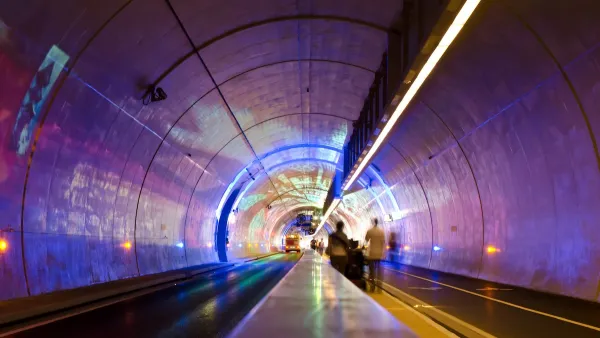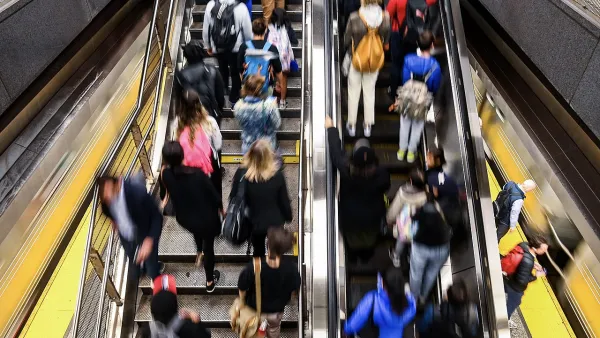Forget reducing congestion and improving the environment; a new paper makes perhaps the strongest argument yet for investing in public transit based on its ability to agglomerate, or cluster people together, raising wages and productivity.
"In a new paper set for publication in Urban Studies, [Daniel] Chatman [of the University of California at Berkeley] and fellow planner Robert Noland of Rutgers University use concrete numbers to make the case that transit produces agglomeration," writes Eric Jaffe. "They report that this hidden economic value of transit could be worth anywhere from $1.5 million to $1.8 billion a year, depending on the size of the city. And the bigger the city, they find, the bigger the agglomeration benefit of expanding transit."
"Simply put, city officials now have a much stronger argument for using taxpayer money to improve their public transportation service," he adds. "If showing that system expansion leads to more riders and less congestion is good, and showing that it reduces pollution and improves public safety is great, then showing in big numbers how much economic growth will occur should be gold."
FULL STORY: Public Transit Is Worth Way More to a City Than You Think

Planetizen Federal Action Tracker
A weekly monitor of how Trump’s orders and actions are impacting planners and planning in America.

Chicago’s Ghost Rails
Just beneath the surface of the modern city lie the remnants of its expansive early 20th-century streetcar system.

Amtrak Cutting Jobs, Funding to High-Speed Rail
The agency plans to cut 10 percent of its workforce and has confirmed it will not fund new high-speed rail projects.

Ohio Forces Data Centers to Prepay for Power
Utilities are calling on states to hold data center operators responsible for new energy demands to prevent leaving consumers on the hook for their bills.

MARTA CEO Steps Down Amid Citizenship Concerns
MARTA’s board announced Thursday that its chief, who is from Canada, is resigning due to questions about his immigration status.

Silicon Valley ‘Bike Superhighway’ Awarded $14M State Grant
A Caltrans grant brings the 10-mile Central Bikeway project connecting Santa Clara and East San Jose closer to fruition.
Urban Design for Planners 1: Software Tools
This six-course series explores essential urban design concepts using open source software and equips planners with the tools they need to participate fully in the urban design process.
Planning for Universal Design
Learn the tools for implementing Universal Design in planning regulations.
Caltrans
City of Fort Worth
Mpact (founded as Rail~Volution)
City of Camden Redevelopment Agency
City of Astoria
City of Portland
City of Laramie





























